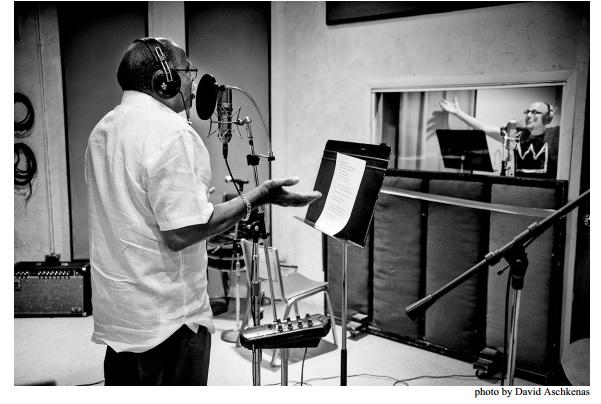Go cruising with Plainsense in his Boattail Riv. Along the way we will discuss what's on our mind while drinking a craft beer, smoking a fine cigar and only listening to good music. So hop in and let's go! I only ask that you throw in a little gas money.
Sunday, December 27, 2015
The Blame Game: They're Missing the Point
Listen to BBC story on Group Thinking starting at
4minute 45 second mark or Download MP3
Tuesday, November 10, 2015
New Orleans Music Impresario Allen Toussaint January 14, 1938-November 10, 2015
It is with profound sadness that I report the passing of one of America's greatest musicians. A performer, arranger, songwriter, producer and New Orleans music impresario, Allen Toussaint, died of a heart attack following a concert today in Madrid, Spain. God bless you Allen and thank you for a lifetime of class, creativity and elegance.
Tuesday, September 22, 2015
Music Lovers Lend Me Your Eyes: No Depression Back in Print
Tuesday, August 25, 2015
The Mastersons Live at the Barrymore Theater: Give Them Half an Hour to Earn Your Love
Saturday, August 15, 2015
Gregg Allman and the Restorative Powers of Music
Monday, August 10, 2015
Steve Earle & the Dukes Give Madison the Blues: Live at the Barrymore Theater, Madison, WI August 8, 2015
To see the full review go to: http://nodepression.com/live-review/steve-earle-dukes-give-madison-blues-live-barrymore-theater-madison-wi
Saturday, August 1, 2015
Lakers Back in Mpls: Secret Stash Records Revue Takes Over First Ave

Wednesday, July 1, 2015
DOJ cites Ferguson for deploying snipers. Assad in MO?
- #DOJ cites Ferguson for deploying snipers during unrest. Didn't know Assad in MO. Stop Militarization of U.S. Police
Thursday, May 28, 2015
Make No Mistake, Price and Clay Put the Music World on Notice With “This Time For Real”

Saturday, May 16, 2015
Riley Ben "Blues Boy" B.B. King: September 26, 1925 - May 14, 2015
"My B.B. King” by Ron Levy
Tuesday, May 5, 2015
Sunday, May 3, 2015
Alejandro Escovedo Brings His Sensitive Boys Back to the Dakota Jazz Club
Fresh off successful gigs in my two favorite cities on earth, New Orleans and Memphis, Alejandro Escovedo brings his Sensitive Boys back to the
Sunday, March 8, 2015
Roadtrip Report: Hope and Optimism From the Heartland
As we gear up
for the next big smackdown, aka the Presidential election cycle, I thought for
a change I would spend a little time to report back on what is right in America
these days as the Great Roll Call finally lived up to its new name with the
addition of the word Roadtrip to its monker.
My great
nephew Hayden is celebrating his first birthday today and my son August
celebrated his 20th birthday on Friday. As I rarely get to see my
sister's family even though they live just 4 states away in Oklahoma and I in
Minnesota, I though this would be the perfect occasion to surprise them with a
visit. Thanks to some last minute juggling by my friends Bob and Cassie
at work and an incredibly generous offer from my old buddy Ralph, who agreed to
take Sausage the wonder dog into his home for the weekend, August and I were
able to break the ties that bind and slip our mortal coils in Minnesota about
1:00 A.M. Saturday March 7th.
With a full
moon high in the clear, cold, Minnesota night sky, the two amigos headed South
on I35 like a couple of Blues Brothers on a mission from God. One of the
first things I am glad to report is the infrastructure known as the interstate
highway system, though a bit frayed these days, got us to our destination safe
and sound.
About 5:00
A.M. I started to get double vision and my son suggested we pull off at the
next rest area to rest our eyes for a couple hours. It did not take long
before we were greeted by a blue rest area sign and were pulling into a well
maintained rest area in Southern Iowa crowded with big rigs but we had the car
side all to ourselves. My little car was surprisingly comfortable with
the front seats laid all the way down and we were out in no time.
After a couple
hours shut eye we were sufficiently refreshed to continue with PBS Weekend
Morning edition as our travel companion. While Scott Simon kept us up to
date with what was happening in an ever complicated and discouraging world,
there were also lots of signs of good news too. The economy was finally
picking up steam, job numbers and GPD were up to some of their best levels in
nearly twenty years and from what we saw in Iowa and Missouri, attests to just
how far we have come since the nadir of the Great Recession seven years
ago.
Every where we looked we saw signs of a great country on its way back. As
we rolled into Kansas City around 9 A.M. on a Saturday morning traffic was
heavy with people on their way to jobs that did not exist at the height of the
recession. I can remember a time not too long ago when you could have
fired a cannon of grapeshot down the middle of the freeways and beltways that
encircle this country's major metropolitan areas and you would have been lucky
to have hit just one car, now the carnage would be akin to that of the First
Minnesota Regiment at Gettysburg.
We stopped at
the Harrah's Casino in Kansas City with the idea we would buy some cigars and
play a few hands of blackjack only to be turned back by Missouri's minimum age
of 21 to gamble. It was however an opportunity to restore on a very
small scale the hopes for better race relations in the country as my son and I
were assisted by a couple of lovely African American women employees of
Harrah's in finding the nearest tobacco store to purchase cigars to hand out at
my great nephew's party.
After biscuits
and gravy at the Hardees in Ottawa Kansas it was back on the road
again. We made good time in the rolling hills of
the Flint Hill Grasslands as we continued heading West towards
Wichita and passed an old favorite haunt, the Cotillion Ballroom home of many
memorable Roomful of Blues shows I attended over the years. Just as
we were getting tired of the monotony that is the interstate we got off it in
favor of the slower but more scenic state highway and a more direct route to
our eventual destination, Hardtner, Kansas.
Unfortunately
this was also to prove a costly decision for your lead footed
narrator. As we got within 20 miles of our eventual destination I
was still traveling at interstate velocity and failed to notice the oncoming
SUV until it lit up like a Christmas tree signaling me to pull
over. I immediately did and had an encounter with an affable and
thoroughly professional officer with the Kansas State Patrol. Anyone
who has read this blog or knows me is well aware of my intolerance for misuse
of power committed by those sworn to protect and serve. There was no
attempt to expand the scope of a routine traffic stop into a fishing expedition
for extra income for his department via the often misused civil forfeiture
laws. So even though it cost me hard earned money I really could not
afford to part with, I accept personal responsibility and tip my hat to Officer
Quick for the professional and legal manner in which he conducted the stop.
If only police
departments in Ferguson, Missouri, Los Angeles County or the City of
Minneapolis had members in their departments the caliber of Officer Quick of
the Kansas State Patrol the state of law enforcement and community
relations in this country would be in a much better place.
While you can
always debate whether these periodic economic ups and downs are merely cyclical
or that the government really does not make that much of a difference in these
matters, one way or another, one needs only to look to the decisions made
by the European Union for comparison to see the wisdom of our current
administration's policies. Unlike Europe and Great Britain which pursued
a policy of austerity for austerity sake, the Obama Administration and Federal
Reserve pursued an economic policy emphasizing government stimulus and low interest
rates as private capital had all dried up and the markets screeched to a halt.
In retrospect,
if you are at all honest with yourself, it would be hard to fault the President
and not admit this was a superior approach over the Hoover like sit back and do
nothing approach of his predecessor or the austerity approach which had landed both
Europe and Great Britain back to the brink of another recession. Despite
all the racist xenophobia on the right and the "sky is falling"
harbinger of doom cries from the Tea Party, stimulus spending did not bankrupt
the country and end life in America as we know it, rather, it saved it.
Furthermore I
truly hope that it dispels once and for all the banal and absurd notions of the
Tea Party that problems to a system as complex as the national economy, with
concepts like the federal deficit, national debt and their interplay with
federal fiscal policies could be reduced down and solved as simply and easily
as balancing the household checkbook at the kitchen table, if we only had the
gumption. These views, which to some seem like common sense, are as
misleading and misguided as they are naive.
No, it is
morning in America again and I'm not referring to that Madison Avenue fantasy
that was sold to the American public some 30 years ago at the Republican
Convention as a distraction, so that they could continue to implement that
failed and cynical economic policy known as trickle down. Just look
around and see the result of that devastating policy: a non-existent
middle class, and an ever burgeoning class of working poor. I had to
laugh the other day when I heard the news report that 80% of Americans still
referred to themselves as middle class yet were living paycheck to paycheck.
If I was
granted just one wish regarding the upcoming presidential election of 2016 it
would be for Americans to really think their next vote out. Take some
time, pay attention to the details, get news from multiple, diverse sources
(including some foreign news sources) and from original sources if possible.
and bone up on their knowledge of American history and
socioeconomic demographics. As we have trended more conservative
are we doing better off or are you, like I, really uncomfortable by the all time
record level of inequality and disparity in wealth? Is your lifestyle,
quality of life, (e.g. time away from work) getting better? As we advance
as a society, are all the benefits and rewards for the most productive labor
force in the history of the world getting misdirected to a tiny number of
elites in society and in a hugely disproportionate ratio between compensation
and their contribution to an organization's success.












 The Great Roll Call
The Great Roll Call 






